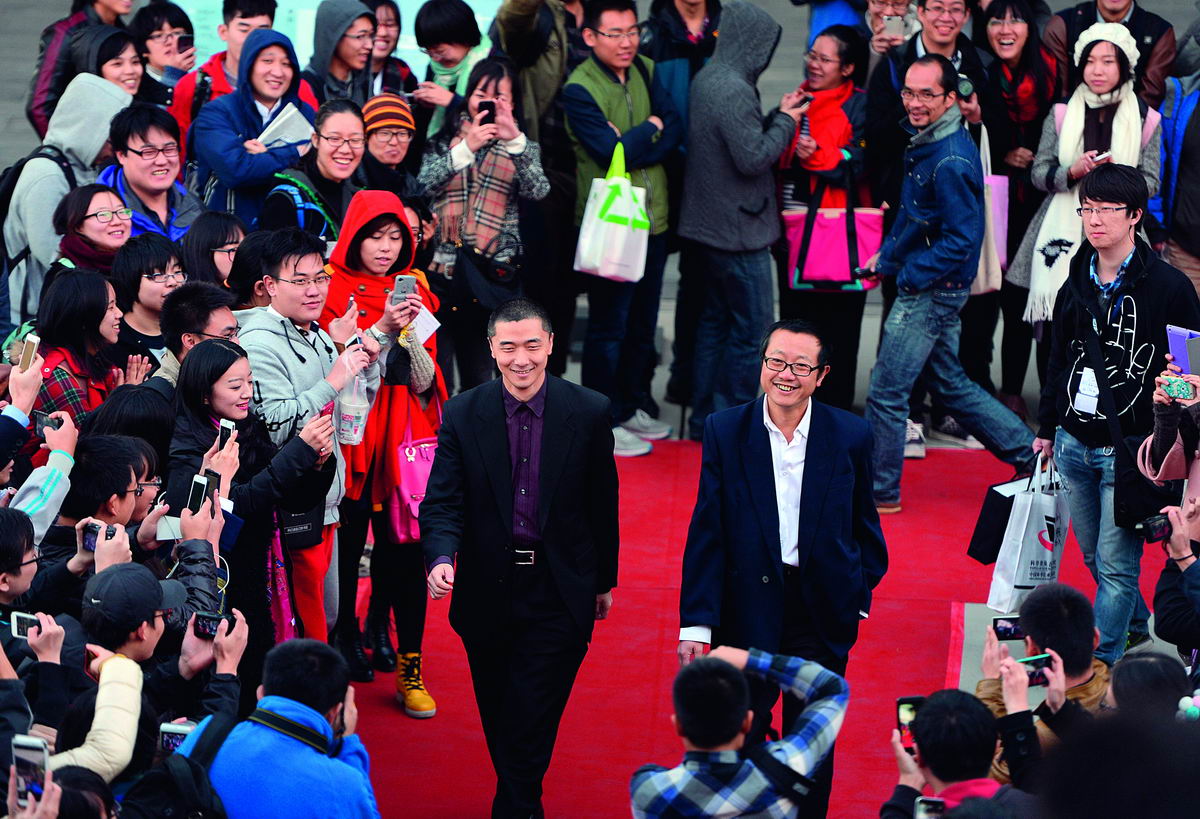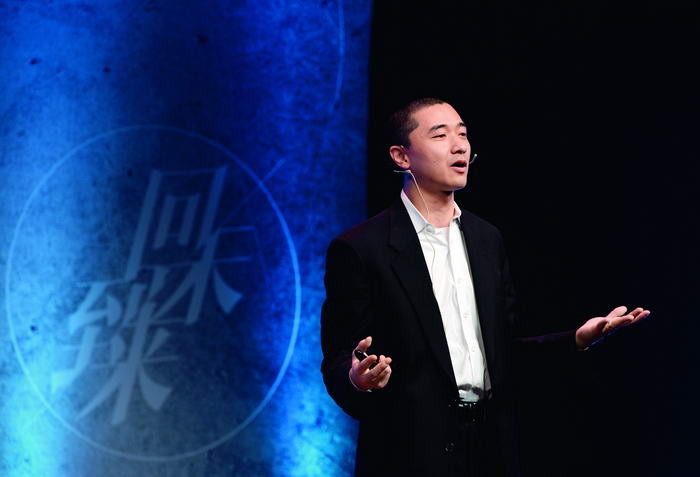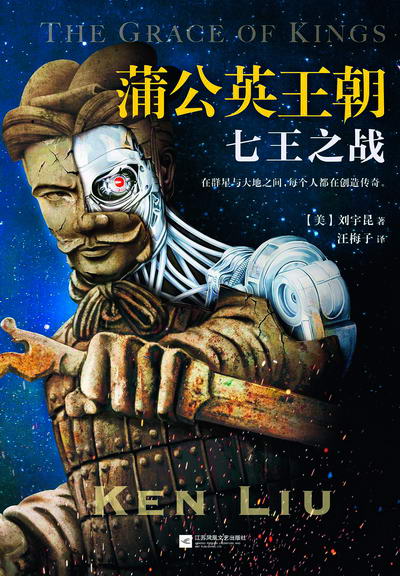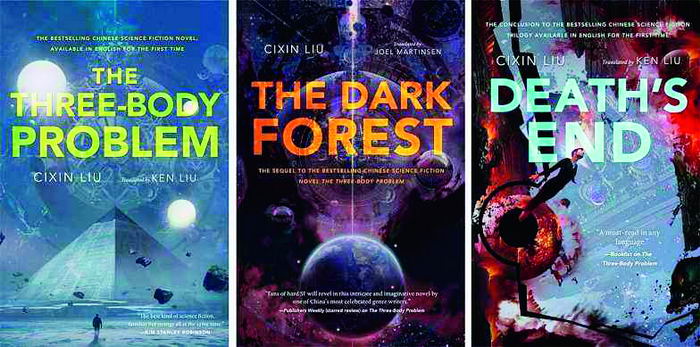Brave New World of Chinese Sci-Fi

In February 2018, the Chinese version of The Dandelion Dynasty, the first English novel by Chinese-American writer Ken Liu, was published. This traditional Western fantasy epic has “re-imagined” the emergence of China’s Han Dynasty (202-220 A.D.). It combines the scientific spirit of the West with classical aesthetics of the East. The core of the story and its narrative is a mix of Western and Eastern elements, just like Liu himself, who grew up in a culturally diverse atmosphere.
Liu translated Chinese sci-fi works The Three-Body Problem and Folding Beijing into English. The “nearly perfect” translation (according to author Liu Cixin) helped The Three-Body Problem become widely known in Western countries. The novel is now hailed as a “treasure of global science fiction.” China’s science fiction is now world-famous. Meanwhile, its translator Ken Liu has emerged as an excellent science fiction writer. Since he began to publish in 2002, he has been honored by many major international awards for science fiction such as the Hugo Awards, the Nebula Awards and the World Fantasy Awards.

The Print of Oriental Culture
Born in the 1970s in Lanzhou, Ken Liu moved to the United States with his parents when he was 11 years old. He studied British literature and law at Harvard. Despite his Asian roots, Liu managed to receive the education of a Western elite. He writes in native English but is heavily influenced by Eastern culture. Liu Cixin once remarked that Ken Liu’s works have managed to “combine scientific imagination and traditional Chinese culture in a delicate and profound manner.”
In The Dandelion Dynasty, Ken Liu mixed Eastern elements such as ancient Chinese legends, history, military plots and technical innovation in a novel manner. Influenced by “Steampunk” science fiction, the novel created a world dominated by highly developed ancient Chinese engineering technologies. Ken Liu said, “I want to create different aesthetics yet feature some of the cool machines of ancient China such as movable type printing, a kite for military spying invented by Lu Ban (507-444 B.C.), and a wooden ox used for transportation of army provisions invented by Zhuge Liang (181-234).”

In February 2018, the Chinese version of The Grace of Kings
of the trilogy The Dandelion Dynasty, the first English
novel by Chinese-American writer Ken Liu, was published.
Ken Liu has read many books on Chinese history and is a fan of ancient Chinese poetry and contemporary Chinese chivalric novels, which have greatly influenced his writing. The Paper Menagerie (2012), his first work to win a Hugo Award, depicts the cultural collision between a second-generation immigrant to America and his mother. Due to a rebellious attitude and juvenile logic, the protagonist missed out on much of the profound love of his mother. Liu’s subtle writing style in this novel is impressive.
Liu’s writing has “an Oriental charm”—reserved, with limited words but profound meaning. Chen Qiufan, a famous Chinese sci-fi writer, explained Ken Liu’s style in cinematic terms: “Rather than a close-up, Liu will give you one side of the face or a back to the camera. Buried under the water are waves of emotion.”
In The Man Who Ended History: A Documentary, Ken Liu invented a Japanese studio called Yurushi. Chinese sci-fi writer Xia Jia first translated it as “Kuan Shu” (forgiveness), but Liu suggested she change it to “Ren Shu” (benevolence and forgiveness). The switch was inspired by a sentence from The Book of Han, a history of the Western Han Dynasty (202 B.C.-8 A.D.), expressing hope that the Chinese would forgive with benevolence.
Promoting Chinese Science Fiction
In addition to writing, Ken Liu has also translated science fiction by contemporary Chinese authors including Chen Qiufan, Xia Jia and Hao Jingfang into English, playing a key role in introducing China’s sci-fi works to the world. Chen Qiufan’s work The Fish of Lijiang, translated by Ken Liu, won the World Fantasy Awards in 2012, the first to a Chinese author.
“When I begin the project, the first step is adjusting the narrative structure to tell the story in a way that is familiar to American readers,” Liu reveals. When translating Xia Jia’s A Hundred Ghosts Parade Tonight, Liu translated China’s traditional 24 solar terms into English phrases that could be easily understood instead of using transliteration. For example, Jingzhe, the third term, is translated as “Awakening of Insects.”
Of Liu’s translations, the most famous is the English version of The Three-Body Problem published in 2014. This book is about a Chinese story, but in order to introduce the environment to a new culture, Liu decided to maintain the original meaning as accurately as possible to retain a bit “wonder and strangeness.” But to help Western readers understand the political background, Liu introduced footnotes, which are rare in English novels. “I wanted to help English readers understand the history related to the story with a few footnotes.”

In 2015, Liu Cixin said in his acceptance speech for the Best Novel of the 73th Hugo Awards that “translation always transcends cultures and space, and as for this book, Ken Liu is the bridge.”
After finishing that translation, Ken Liu invited many American celebrities in the field of science fiction to write book reviews (including David Brin, who serves as a member of the advisory board of NASA’s Innovative and Advanced Concepts group). Many of the reviews were published in major media outlets such as The Washington Post and The New York Times, which ultimately facilitated publication of the English version by the big publishing house Tor Books.
Ken Liu is a rare and outstanding figure in cultural exchange between China and the United States, not only because he translates well, but also because he enthusiastically promotes the works with all available resources. Often through his guidance, a growing number of emerging Chinese science fiction writers are finding more platforms such as American magazines Clarksworld and Lightspeed to present their works to Western readers. Japanese author Tachihara Toya once sighed, “Our science fiction is not as famous as China’s because we don’t have Ken Liu.”
Ken Liu believes that the value of science fiction lies in the possible expression of the future. The metaphors involved in huge changes inspire us to examine ourselves. Along with many other Chinese science fiction writers, he is influencing how people around the globe examine the world and explore the future.